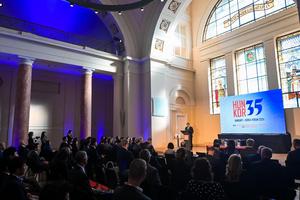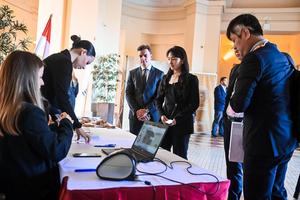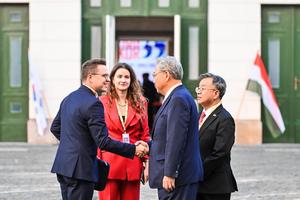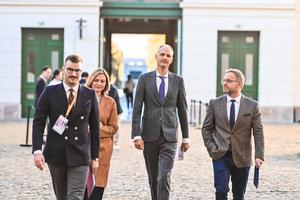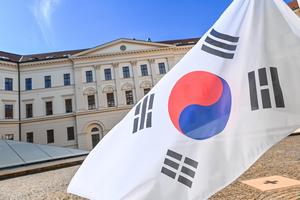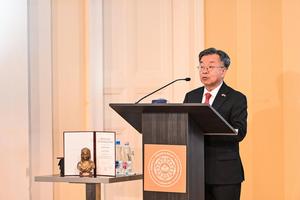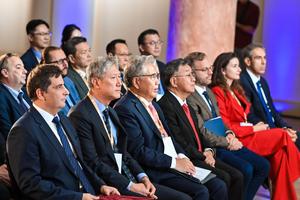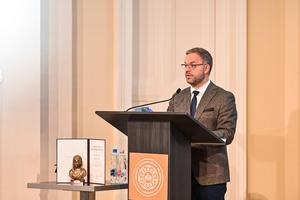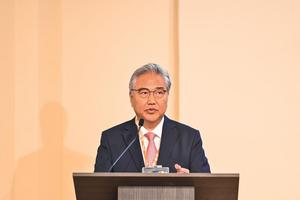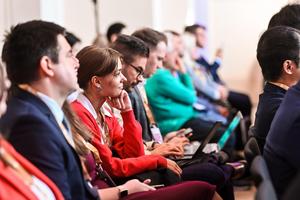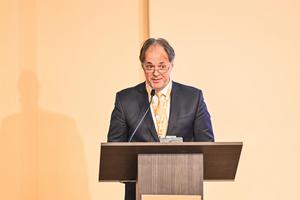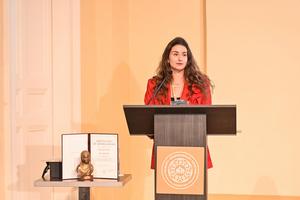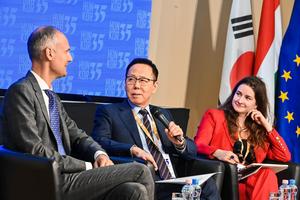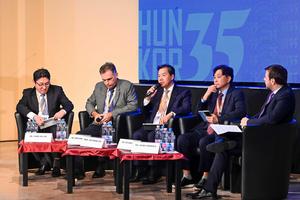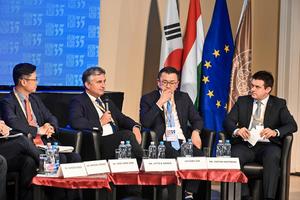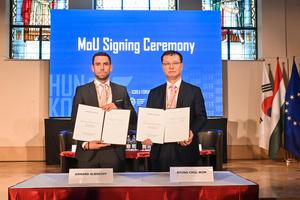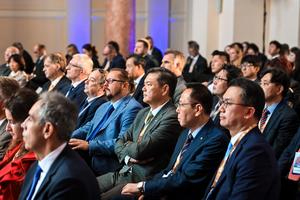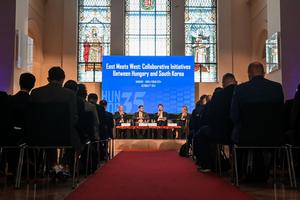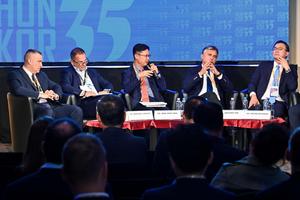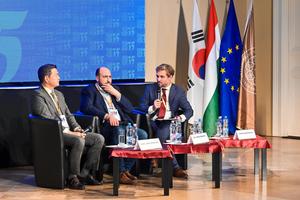A Hungary-Korea Forum was organised by the Directorate General for International Affairs of the Ludovika University of Public Service (LUPS) at the St. Ladislaus Chapel on October 1, to foster bilateral dialogue between high-level decision-makers and scholars from both countries.
In his opening remarks, Gergely Deli, Rector of LUPS, emphasised the relationship between the two states based on shared values and expressed hope for fruitful exchanges on many topics that will shape our future. He recalled the Hungarian-Korean Memorandum of Understanding signed last year, in which the parties agreed to expand their already strong bilateral economic relations to develop a knowledge-intensive economy. Areas such as biotechnology, energy security, sustainability, and innovative technologies were highlighted as potential fields for deepening cooperation. The rector emphasised the importance of international partnerships, particularly the relationships and initiatives between higher education institutions in the two countries.
Hong Kyudok, Ambassador of the Republic of Korea, highlighted that the cooperation between the two countries rests on solid foundations and friendships built over many years. He thanked the diplomats on both sides who contributed to this relationship. He also emphasised the importance of global stability and preventing nuclear war. North Korea is not the only risk in this regard, which is why “no country can stand alone. I see many opportunities for cooperation; our nations can learn a lot from each other in education, technology, sustainable solutions, renewable resources, and digital transformation,” he said, adding that democratic values (dignity, the protection of human rights, and freedom) are also common points between the two states.
Following this, Balázs Orbán, Political Director to the Prime Minister, stressed that the significance of this conference is not only symbolic but also aimed at deepening the 35-year-long bilateral relations. He noted that Hungary has sought to learn from Korea’s success story, valuing Korean principles, work ethics, and knowledge. Orbán highlighted the strengthening of trade and economic relations with statistical data: trade volume has increased nearly sixfold, and investments from Korea have grown significantly over the past years and decades. He also addressed changes affecting the current world order, the growing role of Asia, and the expansion of the middle classes in Eastern societies. Regarding the war in Ukraine, he mentioned that the world seems to be at the beginning of a long decline, marked by bloc formation and a slowdown in growth. In this situation, Hungary is choosing the path of economic neutrality and avoiding bloc formation to maintain and enhance competitiveness. In this effort, there is every reason to strengthen Hungarian-Korean relations and continue cooperation, Orbán emphasised.
Park Jin, former Foreign Minister of the Republic of Korea, greeted the audience in Hungarian and congratulated both countries on their 35 years of diplomatic relations. He stated that this anniversary is a milestone, but they are not only celebrating the past; they are also looking forward to building an even stronger partnership. He expressed his delight at the flourishing bilateral trade, noting that companies from his homeland have created thousands of jobs through their investments in Hungary. He also warned about the challenges ahead, referring to the dangers of global warming and the war in our neighbouring region. Park Jin emphasised the importance of energy security, green technologies, and regional stability. He underlined that Hungary is a gateway between East and West, making it an attractive destination for high-tech companies and playing a pivotal role in facilitating trade.
Gábor Csaba, Deputy State Secretary for Cultural Diplomacy and former Ambassador to Seoul recalled the establishment of diplomatic relations in 1989, adding that the relationship has remained close ever since, with the two countries tackling many challenges together. He expressed his satisfaction with the good relations between the societies of the two countries, the flourishing tourism, and the opening of the Hungarian Cultural Institute in Seoul in 2019.
The conference, among others, explored topics such as energy supply, security policy issues, and the dark legacy of communism from both Hungarian and Korean points of view.
Text: Lilla Kovács
Photo: Dénes Szilágyi
